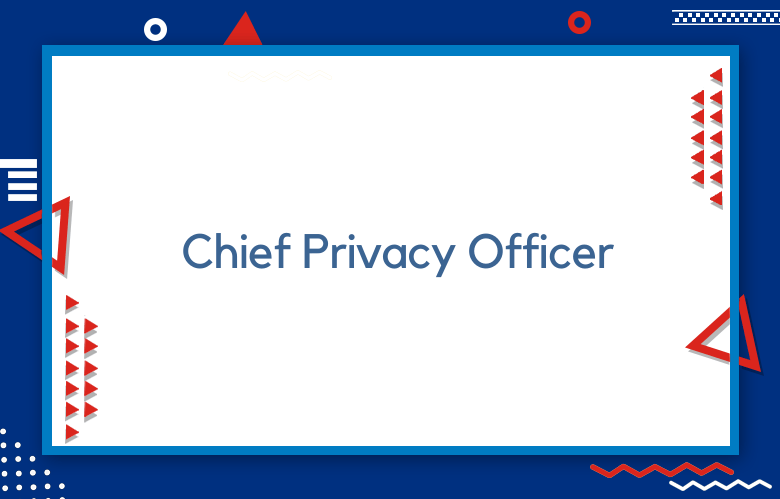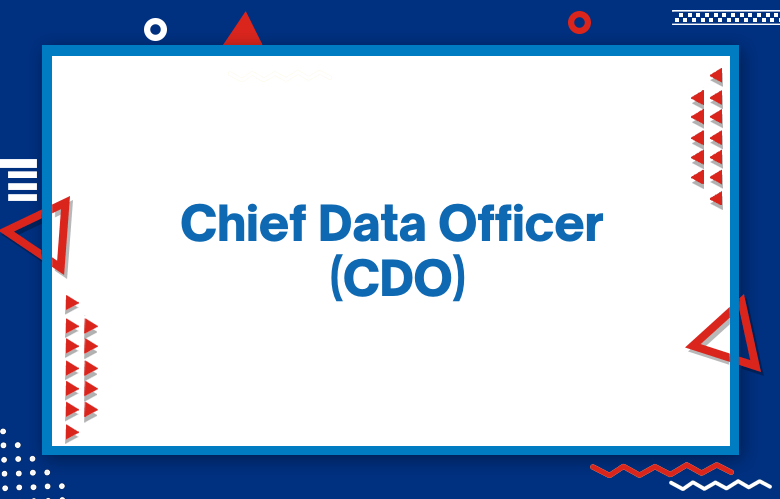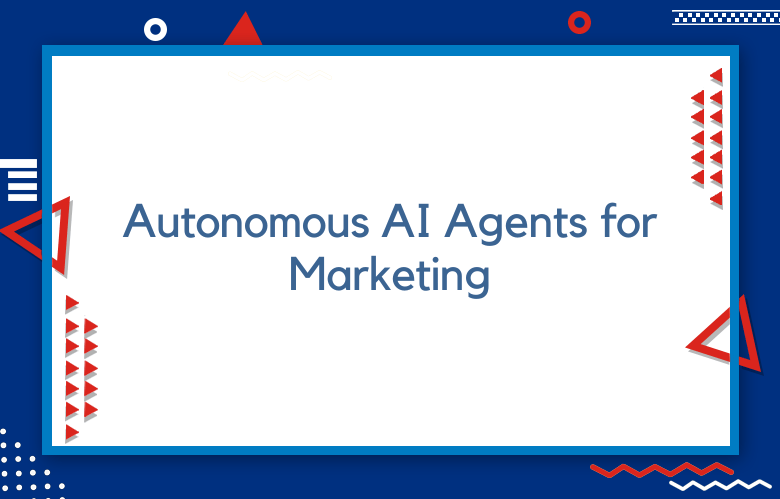Chief Privacy Officer: A day in the life of a Chief Privacy Officer

A job title that has never been used in the workplace, Chief Privacy Officers are now being hired by companies to monitor how data is collected and processed. Far from a passing trend or fad, this position will be crucial for any company with sensitive information about its customers/clients. It is essential to know what steps you can take to protect your privacy- even if you don’t have a high-level job title like Chief Privacy Officer!
Data breaches and hacks have become common in the era of Big Data. To protect your company’s information from being leaked or stolen, you must hire a chief privacy officer who will work closely with the CIO and other executives. In this blog post, we’ll discuss what it takes for someone to land this position.
What is a Chief Privacy Officer?
A Chief Privacy Officer is an executive who oversees the company’s functions. They ensure that employees work responsibly to protect sensitive data and manage compliance with laws like GDPR.
A Chief Privacy Officer is a person who works with the President of an organization to make sure that there are no problems regarding privacy.
The Chief Privacy Officer is the person in charge of ensuring that data privacy laws are being respected.
A Chief Privacy Officer is responsible for the privacy and security of information. Whether it’s it’sring that your company complies with laws or confirming that personal data isn’tisn’tromised, they oversee everything.
A chief privacy officer oversees the company to protect personal information.
Why should companies have a Chief Privacy Officer?
Every major company should hire chief privacy officers to ensure that their customers are protected and secure.
A Chief Privacy Officer is a great solution to ensure your company stays compliant. It’s It’sbest way to get ahead of any privacy issues that might arise in the future.
A Chief Privacy Officer (CPO) monitors privacy throughout the company. The CPO usually reports directly to the board of directors and has complete authority over any privacy issues within their organization.
The job of the Chief Privacy Officer is to make sure that any personal information in your company’s session is handled with care and that it remains secure. Because privacy means more than just keeping customer data safe, this position looks at all aspects of privacy.
In the digital age, privacy is a precious commodity. Data breaches arrive more often than ever before. Having a Chief Privacy Officer helps protect your company from these attacks.
How to become a Chief Privacy Officer
If you’ryou’rerested in becoming a Chief Privacy Officer, it’s it’s to start by earning an undergraduate degree. A great program of study is computer science and business administration. After that, I will take courses focused on privacy law and information security management.
Chief Privacy Officers are responsible for monitoring the customers’ privacy. Since it is a demanding role, you must have strong leadership skills and zero tolerance for mistakes. You also should be ready to put in 80-hour workweeks.
To become a Chief Privacy Officer, one must have at least five years of experience working in data privacy. Earning an advanced degree in business administration or computer science is also essential.
First, you must know the legal and technical aspects of privacy. Then, network with people in your field to make connections and get a job as a data protection officer (DPO).
As a Chief Privacy Officer, you will be responsible for handling the company’s policies. You have to work with both business leaders and IT personnel to develop security systems that are both functional and secure.
To become a Chief Privacy Officer, you must first obtain an undergraduate computer science or engineering degree. It would help if you also took graduate-level classes on applied mathematics and data analysis.
Role of a Chief Privacy Officer
The role of Chief Privacy Officer is hectic but rewarding. I must ensure that all our customers are safe and secure from prying eyes.
It’s The day when I can get everything on my to-do list. Usually, it’s it’s one thing after another, and the issues never seem to stop coming in.
It isn’t hard to imagine that there are people who work all day to ensure the privacy of their employees.
The responsibilities of the Chief Privacy Officer
- Protect the company by maintaining high standards for privacy
- Make sure that all employees are aware of their responsibility to protect customer data
- Make sure that there is a clear line of communication between IT and the rest of the company, especially regarding new policies or changes in security procedures
- Review contracts with third-party providers before signing them, including vendors who process payments, cloud storage services, marketing firms, etc.
- Support the company privacy program with leadership and strategic direction.
- Develop a comprehensive, enterprise-wide privacy policy
- Conduct regular assessments of potential risks to customer data security and implement appropriate measures to mitigate those risks
- Monitor emerging new technologies that may pose privacy challenges or opportunities
- Work with management to ensure compliance with applicable laws, regulations, industry standards, and best practices.
- Protect company data and prevent unauthorized access
- Make sure all employees know how to protect customer information
- Keep up with the latest privacy laws and regulations
- Create a plan for responding to security breaches or other disasters.
- Ensure the company complies with privacy laws
- Monitor and enforce compliance with legal agreements
- Create a culture of data protection and accountability
- Develop internal policies on data governance, retention, and disposal
- Ensure that company privacy policy is up to date and compliant with the law
- Define and enforce appropriate data retention practices
- Develop a risk management plan for handling personal information
- Conduct regular audits of the company with privacy policies
Benefits and drawbacks of being a Chief Privacy Officer
- Negotiating with other departments on how to handle customer data
- Ensuring that the company is following all state and federal privacy laws
- Reporting any potential security breaches or violations of confidentiality to management
- Monitoring compliance with internal policies about handling customer data, such as not sharing it more broadly than necessary for business purposes
- Creating a response plan in case of a breach or violation of confidentiality
- Chief Privacy Officers are in charge of protecting people’s information
- They have to make sure that their company is compliant with all the new regulations and laws
- The position involves a lot of paperwork, meetings, and presentations
- There is a high chance for burnout because it can be stressful and demanding
- Chief Privacy Officers are in charge of creating and maintaining a company policy
- They ensure that the company is compliant with any laws or regulations that exist about data collection, storage, and access
- Chief Privacy Officers also have to be aware of new technologies and how they can affect people’s rights
- The position requires extensive knowledge on both the law side as well as technology side because it is often difficult to predict what will happen next in either field
- Being a Chief Privacy Officer can be an exciting job, but it’s it’s one of the most challenging jobs to get
- There are several benefits to being a Chief Privacy Officer, including being able to shape company policy and oversee compliance with privacy laws
- The drawbacks of being a Chief Privacy Officer are that you will have little control over your schedule and will likely work long hours
- The benefits of being a Chief Privacy Officer are that you get to help people protect their privacy
- The drawback of being a Chief Privacy Officer is that it’s challenging to know when someone has breached your privacy.
The importance of data protection laws such as GDPR for businesses
- Data protection laws such as GDPR are designed to protect individuals from the misuse of their data
- The EU General Data Protection Regulation is a regulation that requires businesses to safeguard and process personal data
- This includes obtaining consent from people before collecting, using, or disclosing their personal information, ensuring that all collected data is processed securely, and being transparent about how they use this information
- Businesses that do not comply with these regulations can be fined up to €20 million or 4% of annual global turnover
- The European UnionUnion’sral Data Protection Regulation (GDPR) is a law that goes into effect on May 25th, 2018
- GDPR requires all businesses to protect the personal data and privacy of EU citizens by design and by default
- This includes limiting what information is collected, ensuring it is only used for specific purposes, being transparent about how it will be used or shared with third parties, and giving people access to their data in a usable format.
- GDPR applies to any company processing or holding the personal data of people living in the EU
- If you have an office in Europe, you are subject to GDPR regardless of your servers’ location.
- Data protection laws are necessary to protect businesses and consumers alike.
- The General Data Protection Regulation (GDPR) is a data protection law that applies to all EU-based companies, no matter the size of their company or where they are located worldwide.
- GDPR requires companies to get consent from customers before collecting personal information about them
- Companies must also provide customers with access to any collected data and delete it on request.
Conclusion
The Chief Privacy OfficOfficer’sis to make sure that the company upholds strong privacy standards. They must also help shape a culture of responsibility and accountability to protect sensitive information from being leaked or stolen by insiders.
If you want a career as a Chief Privacy Officer, take some time now. Go through this article for more tips on how to succeed!
The future of privacy will be in the hands of Chief Privacy Officers. Suppose you intend to hire a new employee. In that case, it is crucial to find someone with experience in data security and customer service to help your company grow while also respecting customers.
Take some time to consider what qualities would make for an ideal candidate before hiring them! We hope this blog post was helpful when thinking about how Chief Privacy Officer jobs could benefit your business.
Call: +91 9848321284
Email: [email protected]



